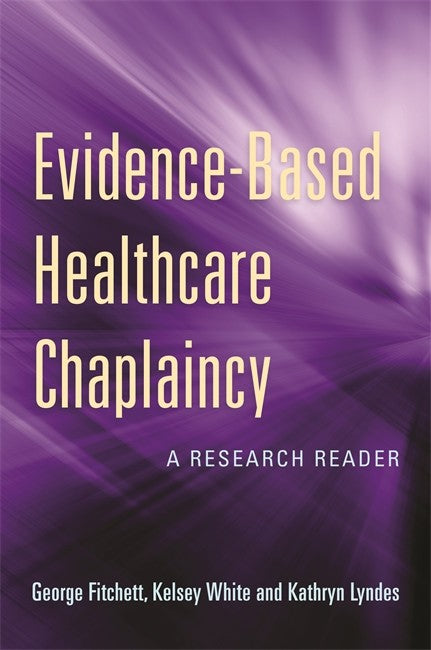1
/
of
1
Evidence-Based Healthcare Chaplaincy
Evidence-Based Healthcare Chaplaincy
SKU:9781785928208
Regular price
$76.98 AUD
Regular price
$88.99 AUD
Sale price
$76.98 AUD
Unit price
/
per
Taxes included.
Shipping calculated at checkout.
Share
This reader gives an overview of healthcare chaplaincy research by offering 21 articles from peer-reviewed journals in a student-friendly format. An introductory section for each article includes a discussion guide to help readers understand chaplaincy research as a discipline and the greater contribution of that article to the field.
Research literacy is now a requirement for Board-Certified chaplains in the US and a growing field in the UK. This reader gives an overview and introduction to the field of healthcare chaplaincy research. The 21 carefully chosen articles in this book illustrate techniques critical to chaplaincy research: case studies; qualitative research; cross-sectional and longitudinal quantitative research, and randomized clinical trials. The selected articles also address wide-ranging topics in chaplaincy research for a comprehensive overview of the field.
To help readers engage with the research, each article includes a discussion guide highlighting crucial content, as well as important background information and implications for further research. This book is the perfect primary text for healthcare chaplaincy research courses, bringing together key articles from peer-reviewed journals in one student-friendly format.
Market: Chaplains in training, lecturers on chaplaincy courses in theological schools, universities and CPE providers, practicing healthcare chaplains undertaking Clinical Pastoral Education and other training.
About the Author
About the Author
Couldn't load pickup availability


